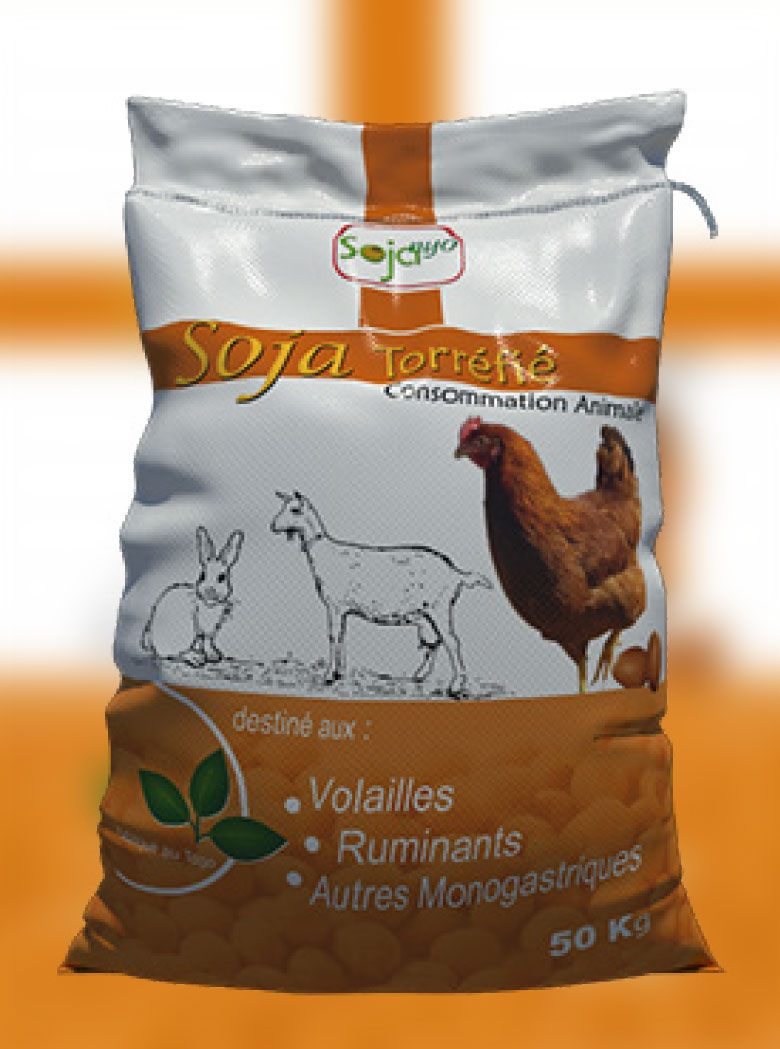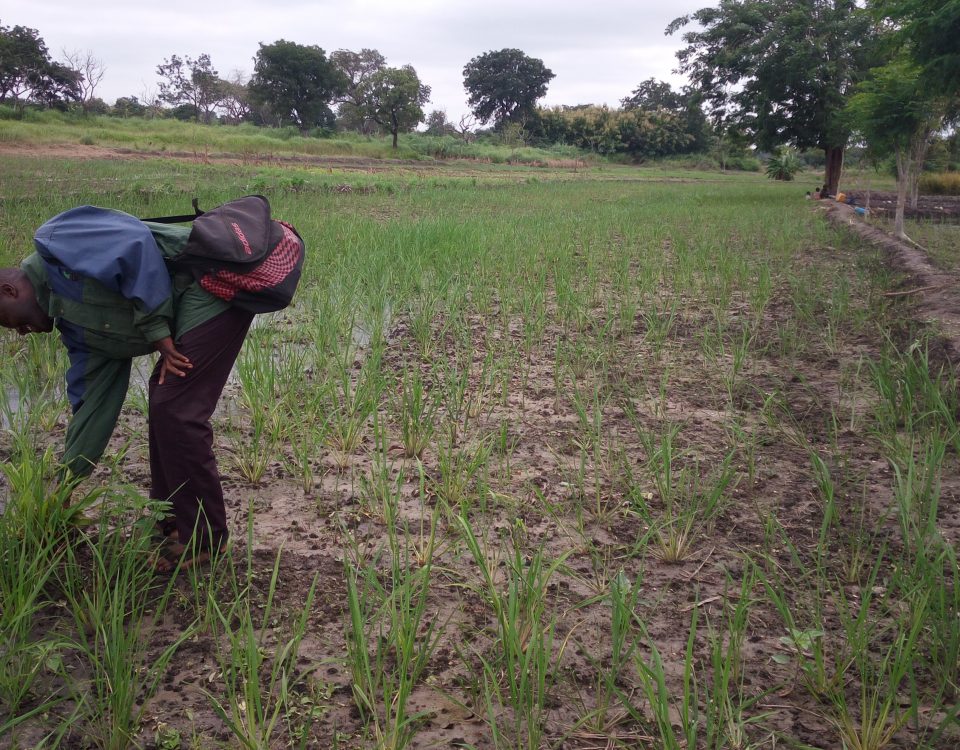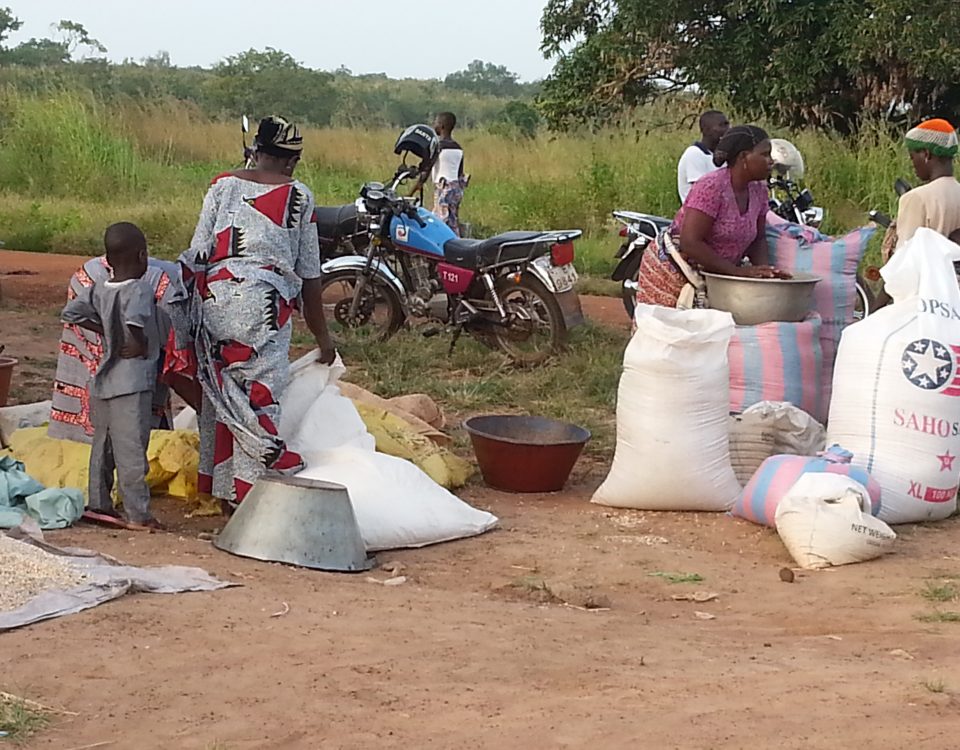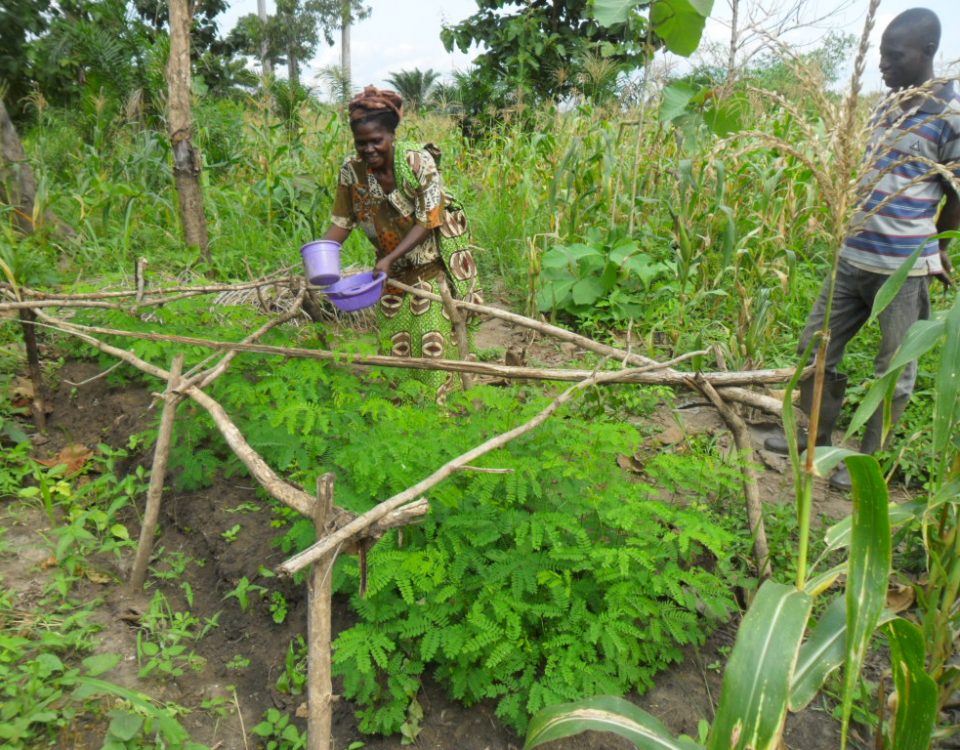ETD invites you to discover ESOP, RESOP and ESOP products
- Presentation of ESOP - Presentation of RESOP Togo / Benin - Some products
- Presentation of ESOP - Presentation of RESOP Togo / Benin - Some products
Presentation of ESOP
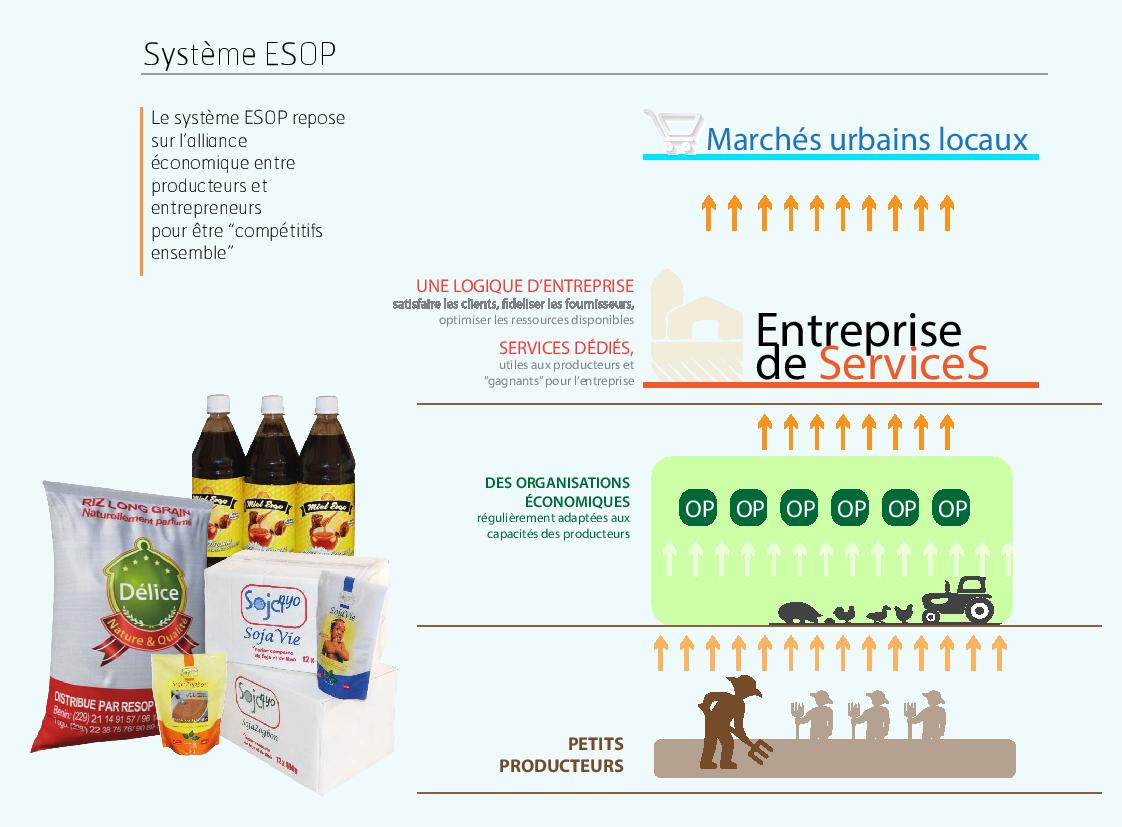
An ESOP (Entreprise de Services et Organisations de Producteurs / Service Companies and Farmer Organizations) is a social enterprise model that sets up a commercial and institutional alliance between a private entrepreneur and organized farmers in order to best meet less than satisfied or unsatisfied demands. Its aims to connect sustainably farmers to lucrative markets in order to increase and secure their income.
* In the ESOP approach, commercial tontines are groups of 10 to 15 farmers who choose themselves by affinity and who commit themselves to deliver all or part of their agricultural production to the company.
* In the ESOP approach, commercial tontines are groups of 10 to 15 farmers who choose themselves by affinity and who commit themselves to deliver all or part of their agricultural production to the company.
1THE FOUNDING PRINCIPLES OF ESOP?
1. Contractualization: the ESOP promotes contract farming in order to limit the uncertainties that are common in commercial transactions between private buyers and farmers. This creates confidence by allowing farmers to plan their productions. The contract is signed at the beginning of the campaign between the ESOP and the farmer groups and specifies elements such as: the quantity; the price; the quality; the period and terms of payment. Through its contracts, ESOP is committed to providing input credits to farmers and close monitoring throughout the campaign.
2. Dialogue: the dialogue brings more transparency in the relations between the ESOP and the farmers.
3. Trust: Trust is born from compliance with the commitments between the company and the farmers. It allows the company to delegate to the farmer group some key functions, namely primary collection, quality control and payment of member farmers. It is a company that favors dialogue and transparency with farmers: it makes commitments (contract) and respect them.
4. Shared capital: after two (02) complete campaigns the farmers and the manager of the ESOP participate in the capital of the company which is generally formalized in SARL.
2TYPE OF BUSINESSES
hey work on at least 2 products.
Compared to the functions performed, there are 03 types of ESOP:
1. ESOPs specializing in the production and provision of inputs more specifically seeds,
2. ESOPs specializing in the production support service (service labour, transport, production, inventory management),
3. ESOPs whose business is the processing and marketing of local products (local products upgrading).
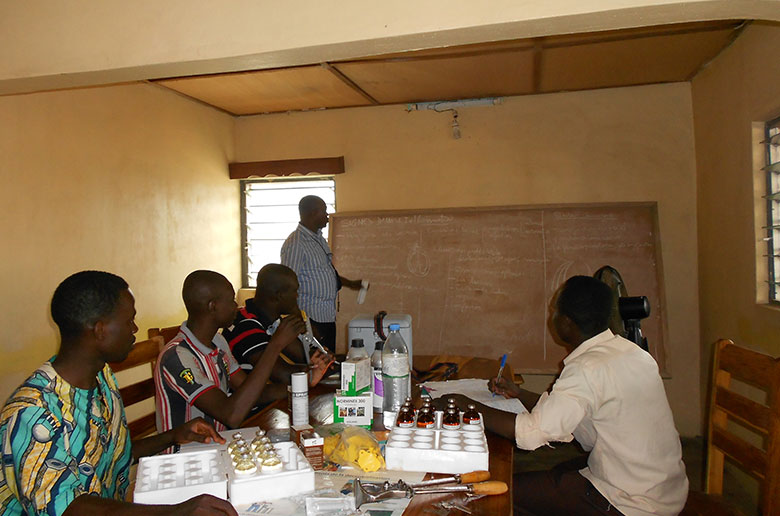
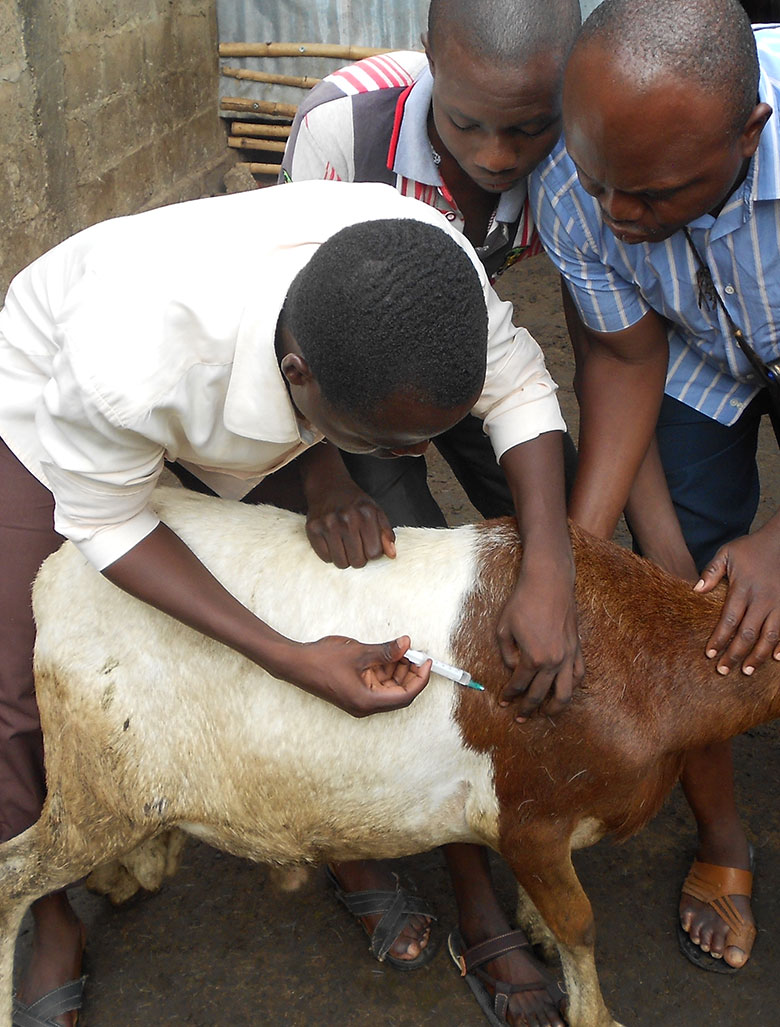
Presentation of RESOP Togo Benin
The RESOP is a commercial dynamic of the ESOPs of Togo and Benin which was created in 2005 following a market research made by Miss Maryline Orsini to sell rice and soy-based meal in the urban markets of Lomé and Cotonou whose findings suggested to pool the sale to weigh pace with the demand. In 2008, it was formalized in Togo as a private limited company (SARL) with ESOP, employees and support structures that are ETD and CIDR as associate colleagues. Its formalization in Benin is underway.
RESOP has an office in Togo: 2971 Av. de la Liberation, Tokoin Gbadago in Lomé and Benin: Rue Sainte Rita in Cotonou.
RESOP collaborates in Togo and Benin with a customer directory for the distribution of its products: wholesalers, supermarkets, private and public companies (in group purchases) and restaurants.
II. Vision, Mission and Goals
RESOP's vision is to provide secure opportunities for ESOP products in the various markets of TOGO and Benin. It aims to extend this service to any processed agri-food product from Togolese and Beninese family farming.RESOP also undertakes with the local market and acts as a market regulator for all ESOPs. In its procedure, it enters into contract with the different ESOPs varying amounts of products to be sold during each year.
2.1. Overall goal of RESOP
The main goal of RESOP is to promote products from ESOPs and other processed products from Togolese and Beninese family farming.
2.2. Specific goals
Specifically, the RESOP aims to :
RESOP is a company promoting agri-food products from Togo. It sells processed local products. It also provides services.
These essential activities are:
A marketing plan was drawn up for this purpose for all rice ESOPs and was organized around four axes :
Specifically, the RESOP aims to :
- Develop the awareness and visibility of the "Délice" rice brand in Togo and Benin;
- Develop and implement a marketing plan for any product it sells
- Develop sales of different products to increase their market share
RESOP is a company promoting agri-food products from Togo. It sells processed local products. It also provides services.
These essential activities are:
- Develop the Délice rice market in Lomé and Cotonou ;
- Implement a quality approach produced through the establishment of a Délice Charter (property of ETD and managed by the RESOP) ;
- Pooling group purchases (packaging, small equipment and processing equipment) for the benefit of ESOPs ;
- Define and implement a marketing plan for any product to market.
A marketing plan was drawn up for this purpose for all rice ESOPs and was organized around four axes :
2.4. Products marketed by RESOP
The packaging used up to date for rice are :
2.6. Prices charged
These prices are based on the cost of production and the price of competitor products ensuring the operation of the RESOP.
- On rice,
ESOPs have two ranges of rice namely:
- Perfumed white rice under the trademark "Délice" in long grain and broken pieces ;
- Parboiled rice ;
- On soy
- Roasted soybeans
- Flour food and pastry
The packaging used up to date for rice are :
- 2,5kg bags
- 5kg bags
- 25 kg bags in (5 * 5)
- and 25kg bags in bulk.
2.6. Prices charged
These prices are based on the cost of production and the price of competitor products ensuring the operation of the RESOP.
Some products
Some products Each product from ETD's "ESOP" project has an identification sheet of some products.
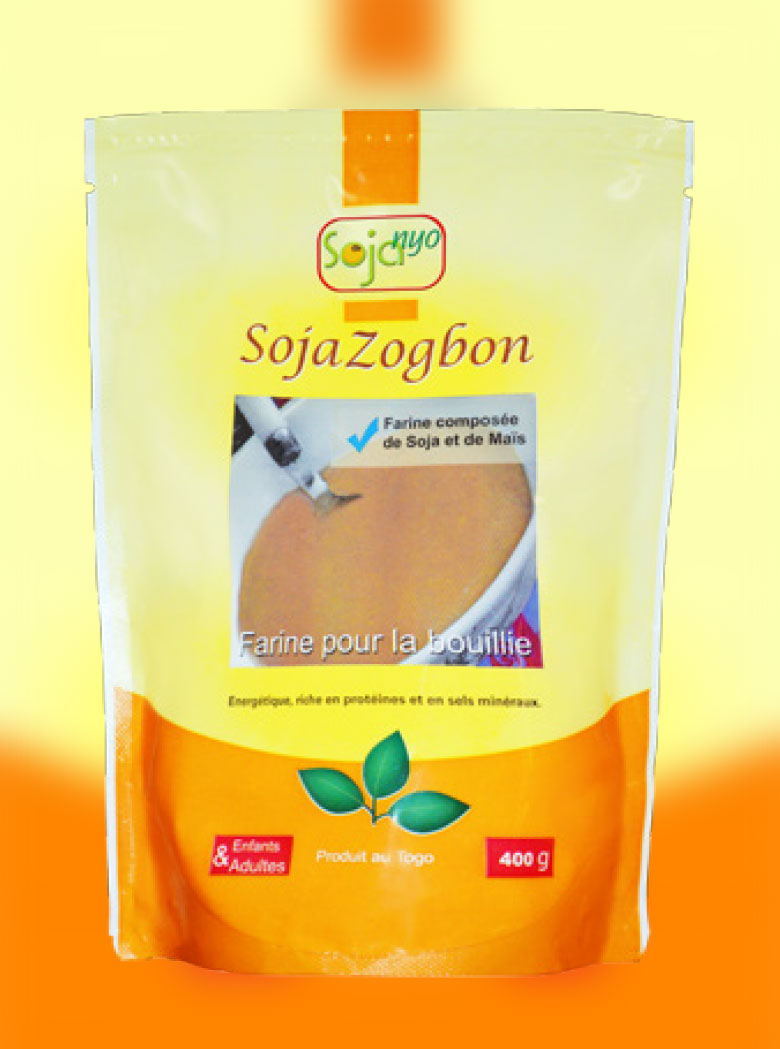
Sojazogbon
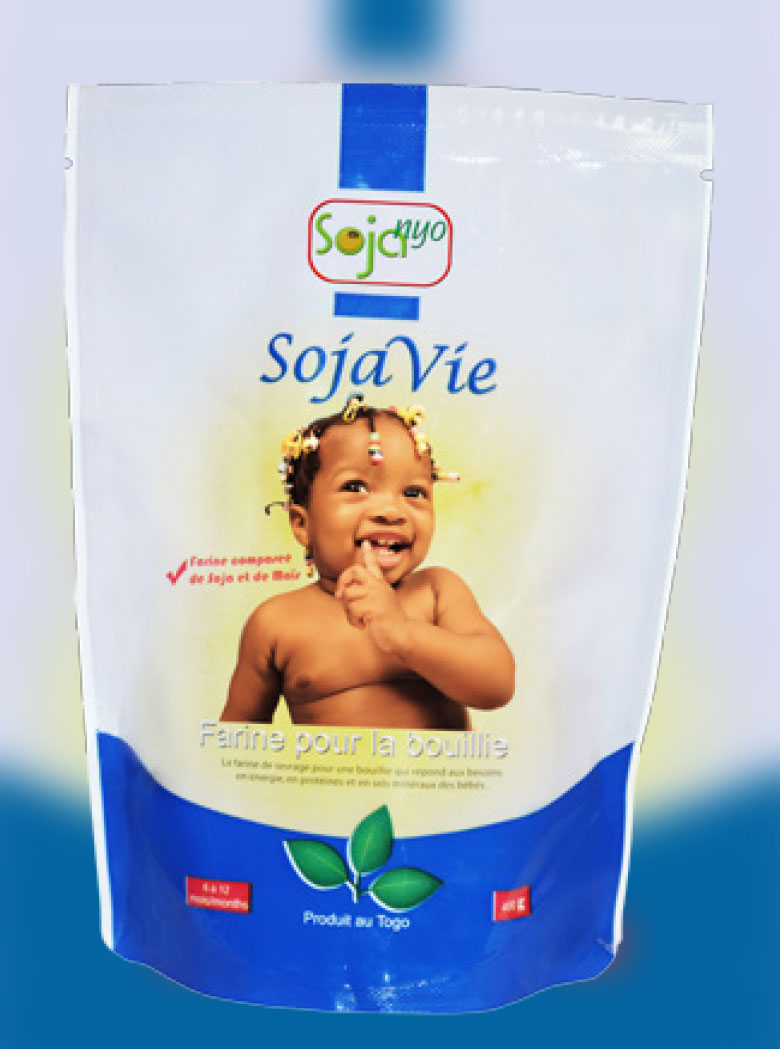
Sojavie
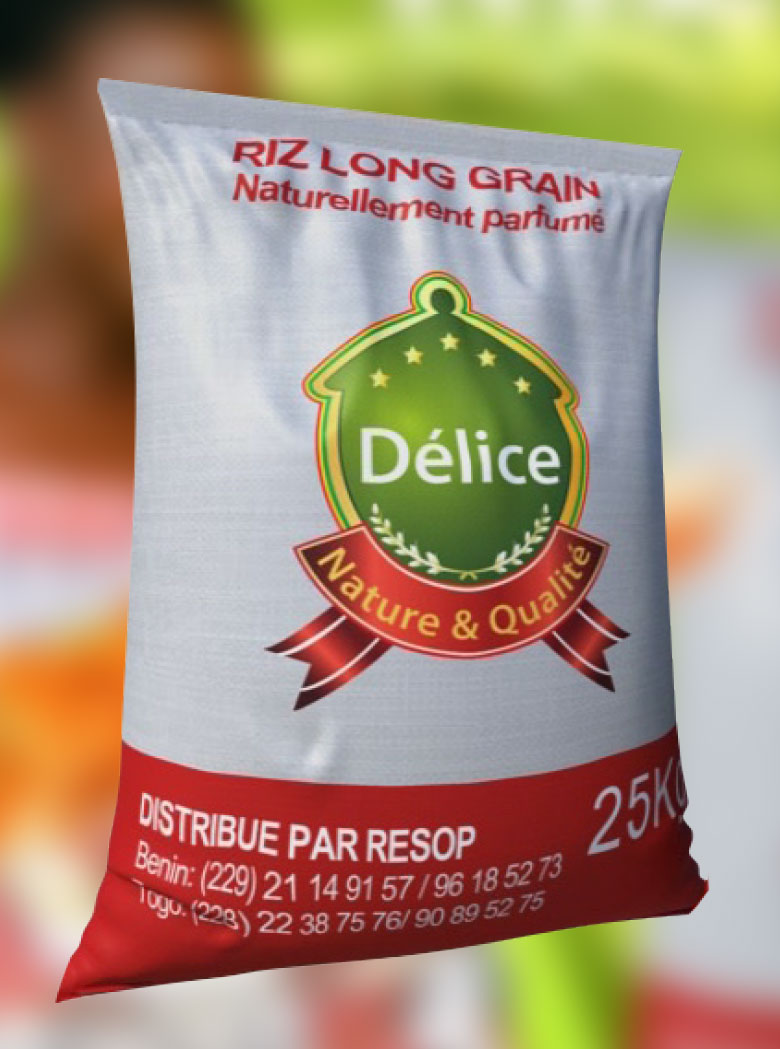
Riz Délice
